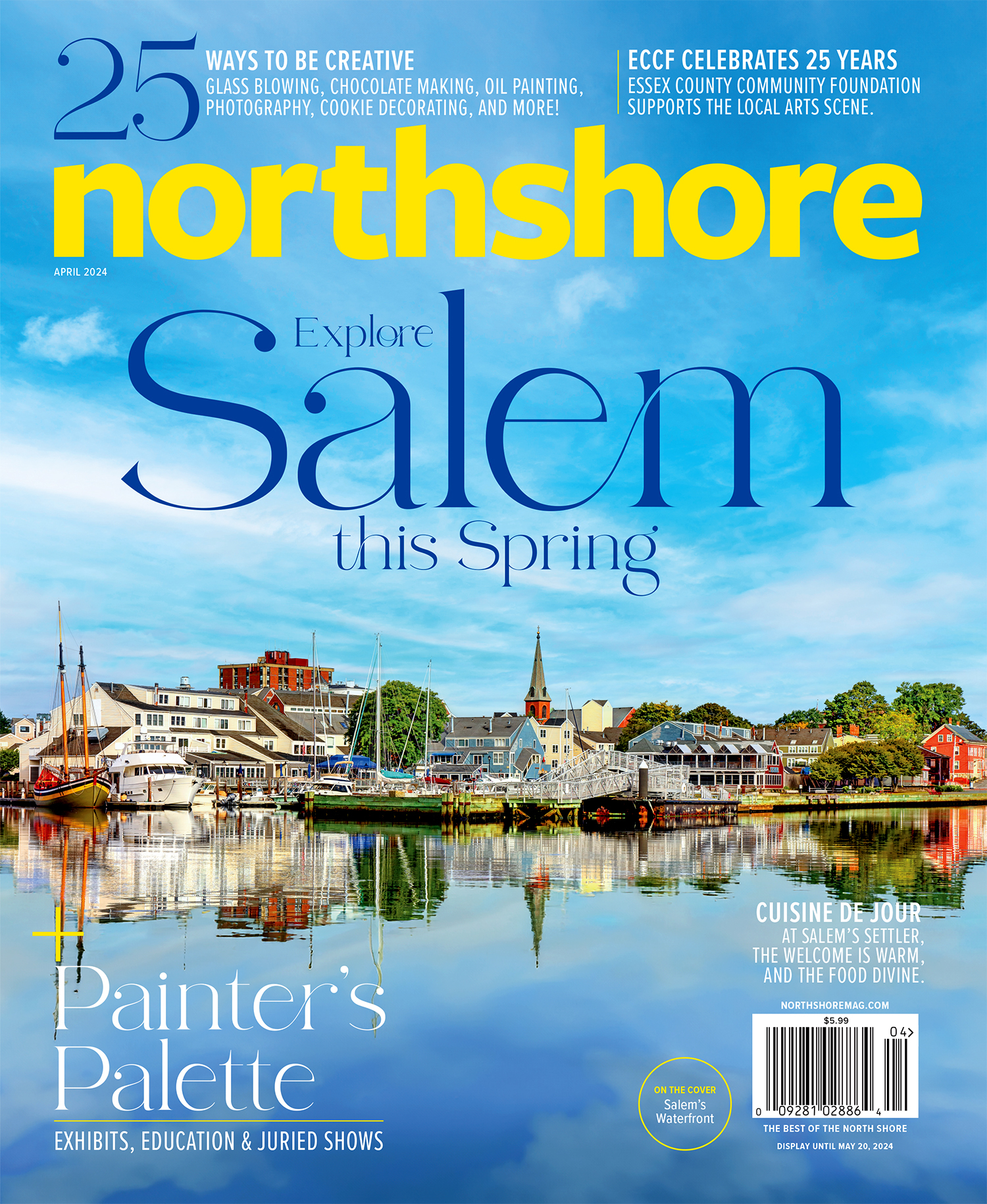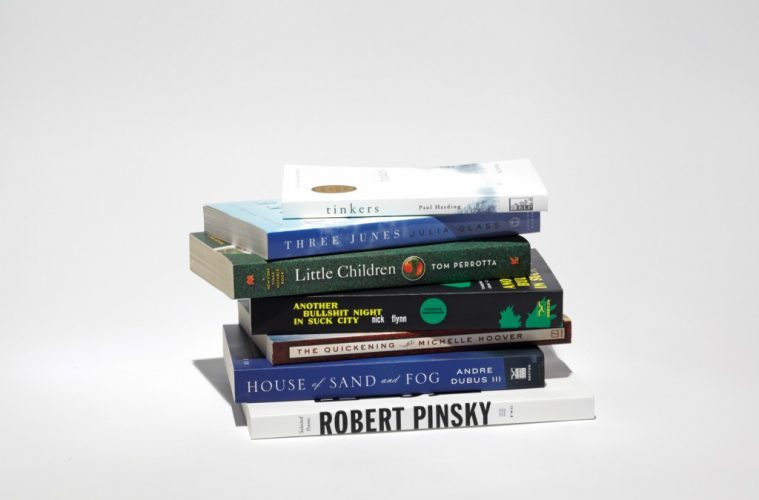The North Shore is home to a prolific community of authors whose ties-to the area and to one another-run deep. By Julie Batten
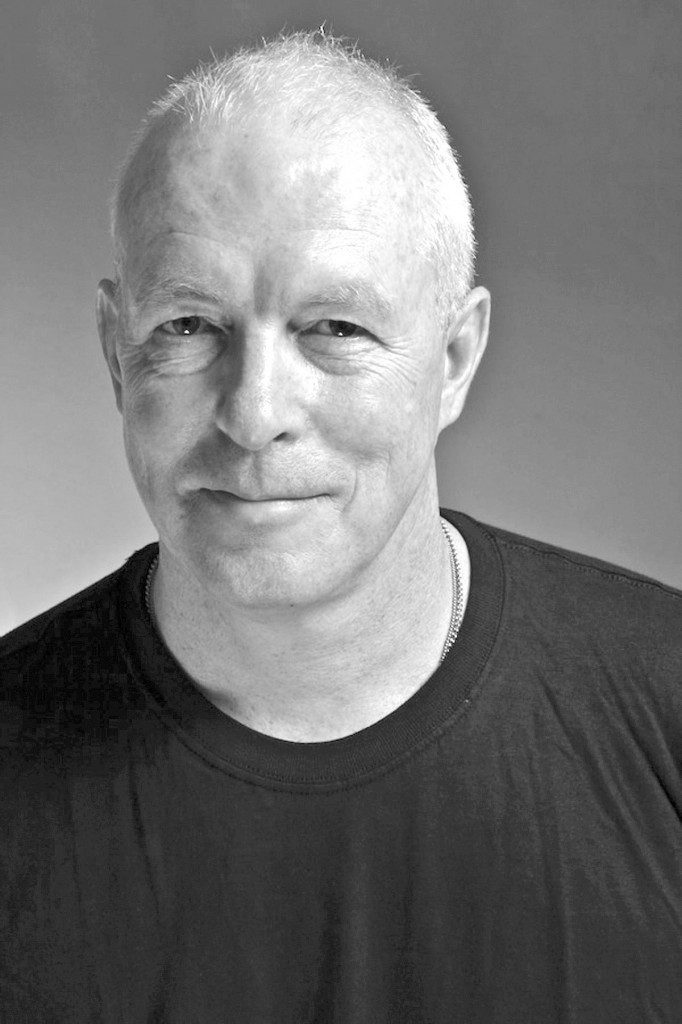
Kevin Carey
Kevin Carey is a writer-not a very famous one (yet), but like so many writers, a man who “writes because I can’t imagine not writing.” As an English professor at Salem State University and the author of a new volume of poetry that just came out last spring, The One Fifteen to Penn Station, he’ll be the first to tell you that “poetry starts in the gut, not in the head.”
Carey writes about growing up in Revere, playing basketball with a high school team that slayed giants, fatherhood, and “places I’ve been, people I’ve known.” As a longtime member of the Salem Writers Group, which meets twice monthly at the Athenaeum in Salem, Carey has been writing everything from plays to poetry to essays to documentary films since the ’90s. “The writing community on the North Shore is a lot larger than people realize-and a lot busier,” he says.
“The kind of commitment to the arts that you expect of a literary haven like Cambridge has migrated, says Askold Melnyczuk, founder of Boston’s internationally renowned literary journal, AGNI magazine, and author of numerous award-winning books, including House of Widows and Ambassador of the Dead (as well as the forthcoming Smedley’s Secret Guide to World Literature). “No longer is the cultural calendar under central control of a handful of gatekeepers.”
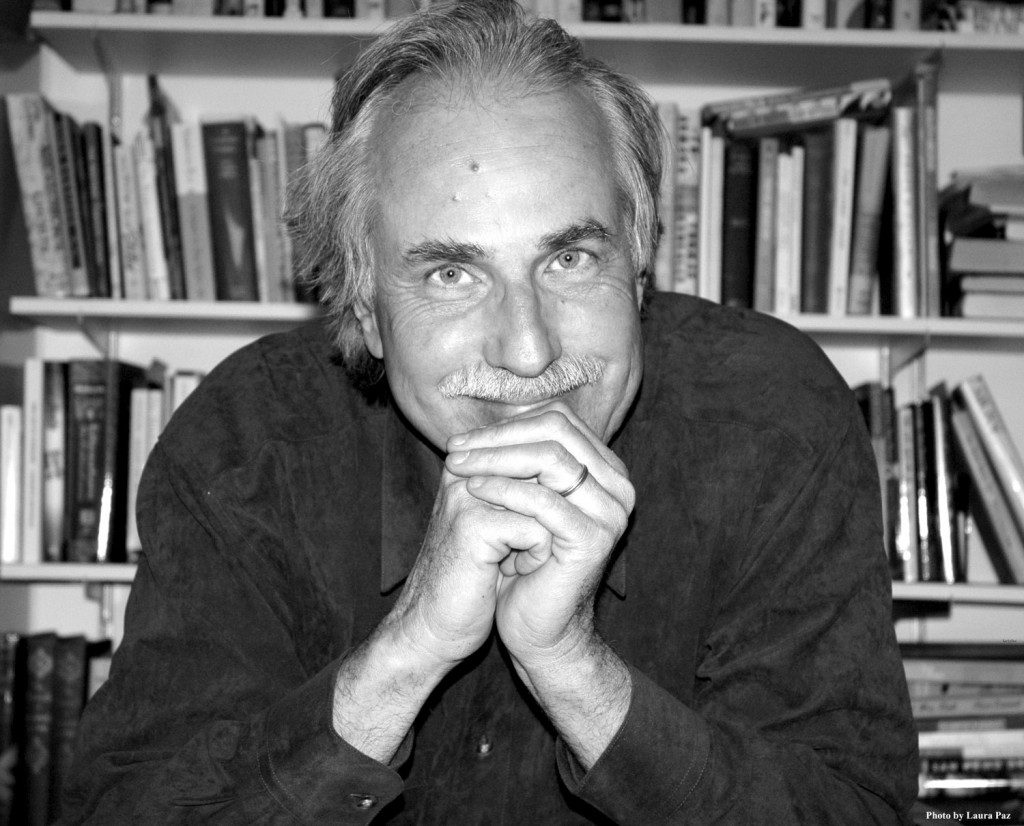 Askold Melnyczuk
Askold MelnyczukMelnyczuk is an English professor at UMass Boston and Bennington Writing seminars and originally founded AGNI with the intention of creating a platform for promising young writers to debut their work alongside seasoned professionals. Therefore, he knows how to grow writers and the communities they inhabit. Melnyczuk sees the wealth of writing organizations springing up and literary events taking place in the area outside of the city as inevitable, with technology making it “difficult to think about geographic place of birth because [the process of creating] seems to be universal.” Quite simply, good writing begets good writing, and it’s here on the North Shore by the droves.
On a recent Saturday night at Jabberwocky Bookshop in Newburyport, the folks who run the Tannery Reading Series there invited renowned writer Andre Dubus III and first-time author Anthony D’Aries to read excerpts from their memoirs to a standing room-only crowd. Dubus’s Townie and D’Aries’s The Language of Men promised to deliver “red-blooded, blue-collared stories about dishing manhood in the 21st century,” and they didn’t disappoint. Sidling up to the podium in cowboy boots and Doc Martens respectively, Dubus and D’Aries delivered, with a stilling candor, moving accounts of their upbringings, their relationships with their fathers, their children, and their adolescent battlegrounds.
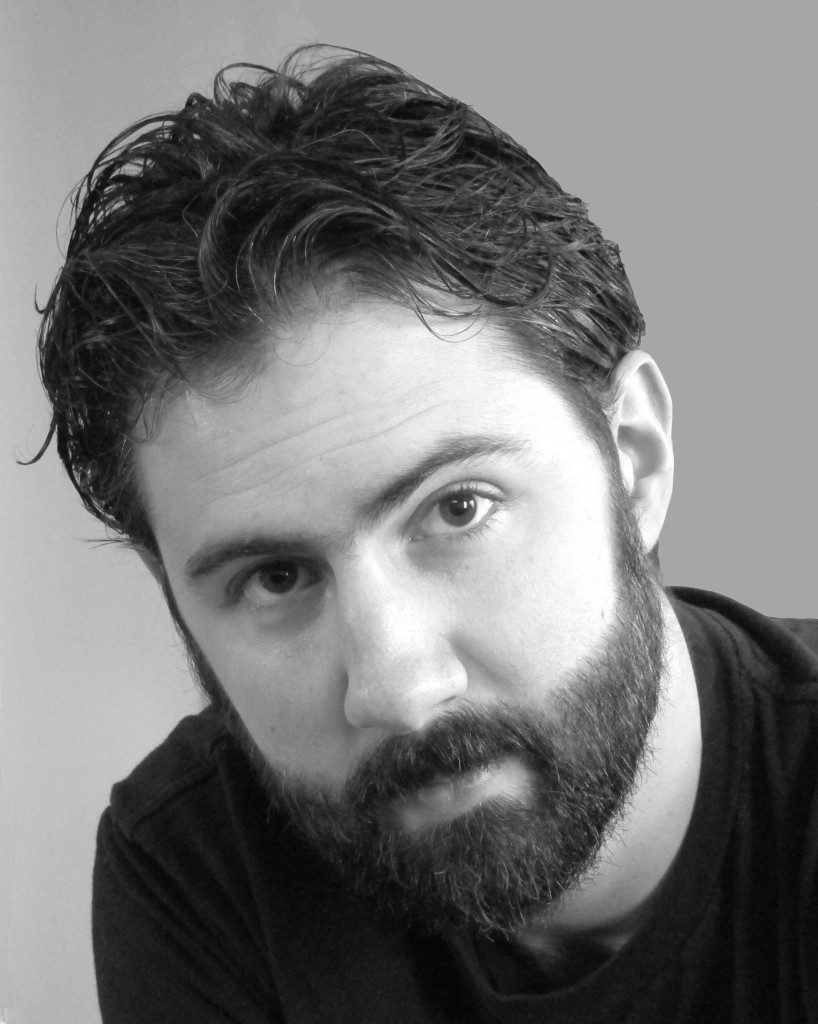 Anthony D’Aries
Anthony D’Aries“So, what does it really mean to be a man?” jibed Karen Kapur, one of the founders of the series (which will be moving to the Peabody Essex Museum in 2013).”I used to think it meant using your fists,” said Dubus, a Haverhill native. “But I can tell you that I’ve never felt more like a man than when I’ve held my children in my arms as they slept.”
Dubus, a Guggenheim Fellowship recipient, chose to live and raise his children in the Newburyport area because “there’s a physical beauty here that is good for the soul.” With such titles as House of Sand and Fog and The Garden of Last Days behind him and another feature film in development (The Citizen), it makes a case for looking out the window with pen in hand. Dubus claims that reading a smattering of poems each morning also helps him slide into the subterranean channels of his imagination. “Making art doesn’t feel good-most of what [writers] unearth [is what] most people don’t want to unearth.”
That morning poetry is Dubus’s way into a creative space could please few people more than it does January Gill O’Neil, executive director of Mass Poetry and author of her own volume of poetry, Underlife. In collaboration with Salem State University, O’Neil has been working alongside fellow poet and Mass Poetry founder Michael Ansara since the festival was first held in Lowell in 2009. The event brings poets together from all over New England to share their words and teach workshops to all who attend the three-day celebration. “There is a convergence of art and talent and interested people who care about poetry and connecting to the unique synergy that is the North Shore’s literary community,” says O’Neil. “People are gravitating toward a shared experience-it’s something that Twitter and Facebook can’t offer.”
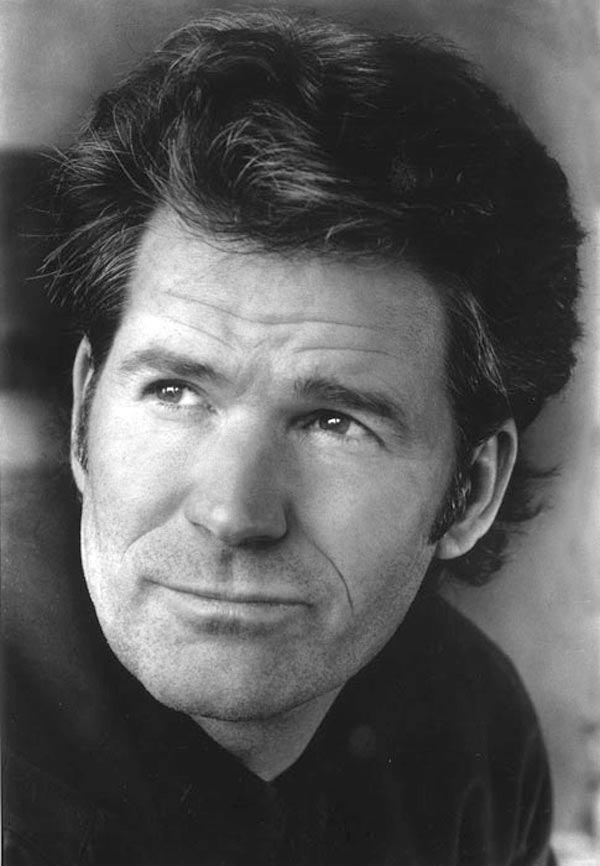 Andrew Dubus III
Andrew Dubus IIIThis year, the poetry festival will feature Academy of American Poets Chancellor Sharon Olds, as well as Terrence Hayes, Tracy K. Smith, and Nick Flynn, among others. Once again, downtown Salem will throw open its doors to poets and their poetry from May 3-5. Readings and workshops will take place in bookstores, restaurants, gift shops, the Old Town Hall, on trolleys headed across town, and amid the Old World charm of the Gables. Headlining events will be held at the Peabody Essex Museum, whose atrium each year becomes the backdrop for such literary gurus as Mark Doty and Major Jackson.
“The North Shore is absolutely a literary center, of course, and has been since its founding,” says Newburyport resident and award-winning poet Rhina Espaillat. Her own group, the Powow River Poets, which includes such notable talents as Mike Juster, Alfred Nicol, Debra Warren, Len Krisak, and Bill Coyle, was started 20 years ago, when Espaillat moved to the area from New York City. As a group that meets bi-monthly to workshop their poetry at the public library in Newburyport, they have been coaching each other for the past 20 years, racking up quite a share of such prestigious honors as the Robert Penn Warren and Robert Frost Book Awards, among others. The group will be presenting again this year at the Newburyport Literary Festival, an event that showcases all genres, on April 26 and 27.
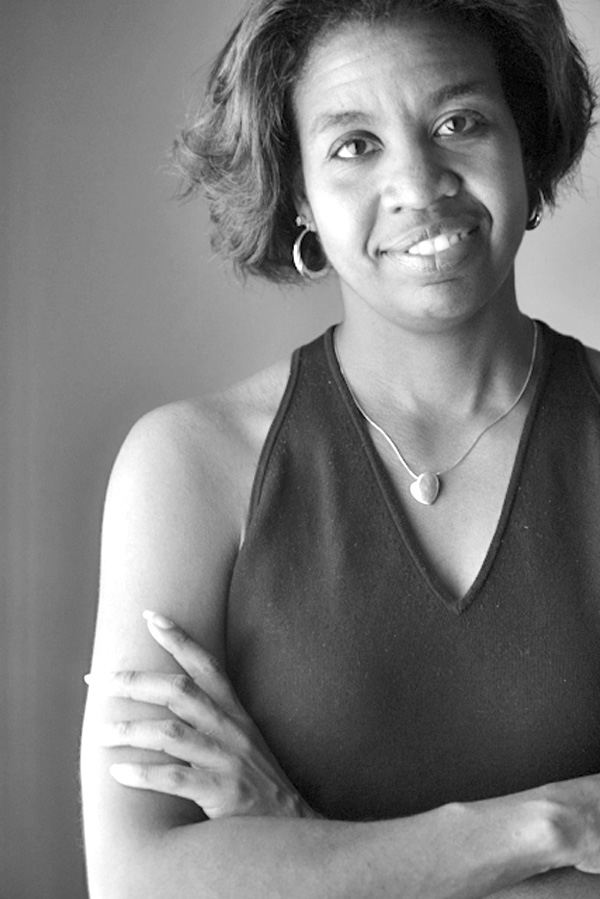 January Gill O’Neil
January Gill O’NeilEspaillat’s other group, Melopoeia, which in translation means “the making of poems or music,” is a performance collaboration between herself and fellow Powow poet Alfred Nicol, set to the music of John Tavano and vocalist Ann Tucker. Espaillat joins a few other area poets who have turned to this amped-up literary delivery, including Robert Pinsky, former Poet Laureate of the United States, whose work with Grammy Award-winning pianist Laurence Hobgood was on tap at the Regatta Bar in Boston last year and is the focus of his recently released CD, PoemJazz. Confluence, a piano and poetry duet featuring J.D. Scrimgeour, founder of the Salem Writers Group and professor of English at Salem State University (SSU), and renowned musician Phillip Swanson, is also of this new hybrid blend of genre. “I love knowing of all the possibilities that exist for people, especially young people, to get drawn into literature and poetry in the area,” says Espaillat.
In Lynn, poet Enzo Surin couldn’t agree more. When he started up the City Unplugged Coffeehouse there, it was with the intent of engaging non-traditional reading communities in the literary scene “in a way that wasn’t intimidating,” he says. “We also wanted it to be family friendly, so that there would be no added expense [for childcare] to coming out to listen and share.”
Surin, who grew up in a tough part of Queens, NY, found early on that writing was his way out. “Literacy was a way for me to escape the neighborhood and see it from a different perspective; what I understand now, though, is that my function as an author is diminished if the people I am writing for can’t read my work.” The poet, a Pushcart Prize nominee who teaches at SSU and Bunker Hill Community College, has published his own volume of poems, Higher Ground and has seen the impact of his open mic readings in “so many moments where the light clicks on and someone’s face lights up because something has been expressed that would have otherwise been lost.”
Faces lit up on a recent Saturday afternoon in Gloucester, when the Gloucester Writers Group, in collaboration with the Cape Ann Museum, and the Charles Olson Society hosted a conversation about poetry with Anne Waldman. As a poet, Waldman is arguably one of the great literary voices of our time. Having caught the attention of the Beat Generation’s Allen Ginsburg, Waldman traveled extensively with the Rolling Thunder Revue, a poetry caravan of sorts that attracted musicians like Joan Baez, Joni Mitchell, and Joe Cocker in the ’70s. She later co-founded the Jack Kerouac School of Disembodied Poetics at the Naropa Institute (now Naropa University) in Boulder, CO, where she remains a Distinguished Professor of Poetics and the director of Naropa’s famous summer writing program. Waldman’s poetry is as beautifully startling as her über-theatrical delivery of it.
That a poet such as Waldman should be reading on Cape Ann rather than in some swanky gallery on Newbury Street is not at all surprising. After all, the North Shore’s literary heritage is extensive, with names like Nathaniel Hawthorne, John Updike, Anne Bradstreet, Edna St. Vincent Millay, and Charles Olson existing in the same milieu as Rhina Espaillat, Andre Dubus III, Askold Melnyczuk, and all the
Kevin Carey
s in the world climbing their way to the forefront. Says Espaillet with regard to the preponderance of talent and literary happenings in the area: “A rising tide raises all boats.” ?n